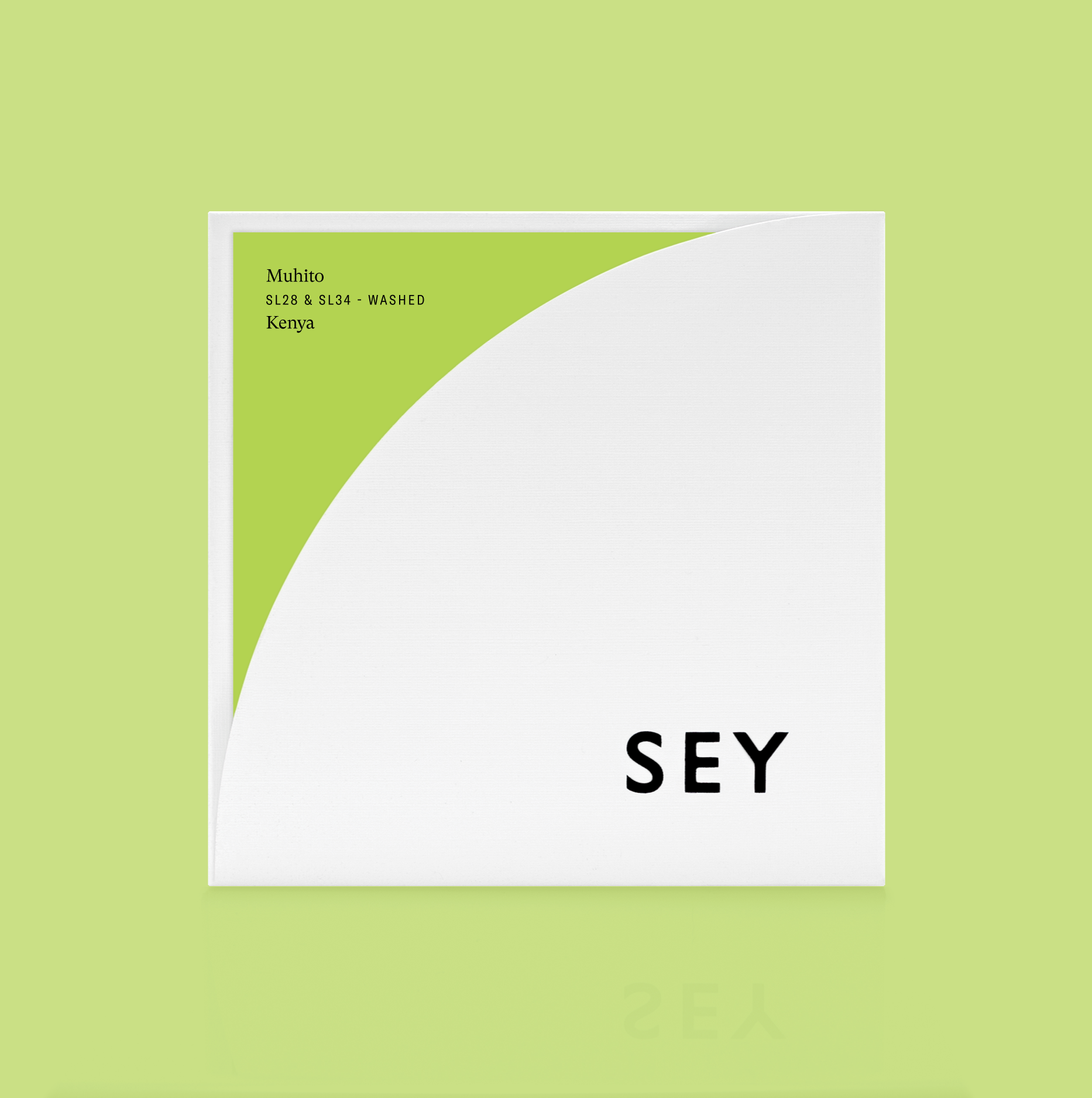
Muhito is one of several washing station co-ops that participated in our SL variety separation project this year. In the cup we find a lovely traditional Kenyan profile of pomegranate, hibiscus, and rose.
SL28 & SL34
Nyeri
1,760 masl
December, 2024
Hand-picked at peak ripeness. Hand-sorted to ensure only the very best cherries are selected. De-pulped. Fermented for ~24 hours. Floated through channels to sort by density and remove remaining defects. Soaked overnight in fresh water. Dried on raised beds for 15 days while continually turned and hand-sorted.
ABOUT MUHITO
Muhito is another lot from our Retro 1984 project, with a specific focus on SL variety separations. This washing station is located in Nyeri along the Aberdare ridge, which, in our opinion, produces some of the best coffees in Kenya—and the world. Most of the lots we are working with this year come from single farms, as this approach provides the clearest path to true, traceable variety separations. That said, we were pleasantly surprised when several top-performing washing stations also expressed interest in participating. Muhito is one of those sites.
ABOUT RETRO 1984
This is the first year of Retro 1984—a collaborative project between Peter Mbature, Tim Hill, and SEY, born from years of conversations and a shared concern about the declining quality of Kenyan coffees. This effort is an active step toward asking better questions and conducting meaningful experiments to help revive the flavor profiles we all once knew and loved. The name Retro 1984 references the year just before the introduction of the hybrid variety Ruiru 11 in Kenya. At its core, this project is about returning to SL variety separations and exploring their full potential. We believe deeply in the future of Kenyan coffee, and this is one of the most exciting projects we have ever been a part of—driven by our enduring love for these profiles.
ABOUT SL28 & SL34
“SL” is in reference to single tree selections made by Scott Agricultural Laboratories in 1935-1939. SL34 has a Typica-like genetic background selected from a single tree on the Loresho Estate in Kabete, Kenya. SL28 is of the Bourbon genetic group, and was selected for its drought resistance as well as its extremely high cup quality. SL28 is one of the most well-known and well-regarded varieties in Africa. It has consequently spread from Kenya to other parts of Africa as well as Central and South America. Both varieties are non-hybrid, and very susceptible to disease.
Pricing Details
FARM GATE (USD; GREEN)
$13.12/KG
FOB
$15.85/KG
FOT
$17.45/KG
The cost of getting a coffee from cherry to beverage varies enormously depending on its place of origin and the location of its consumption. The inclusion of price transparency is a starting point to inform broader conversation around the true costs of production and the sustainability of specialty coffee as a whole.